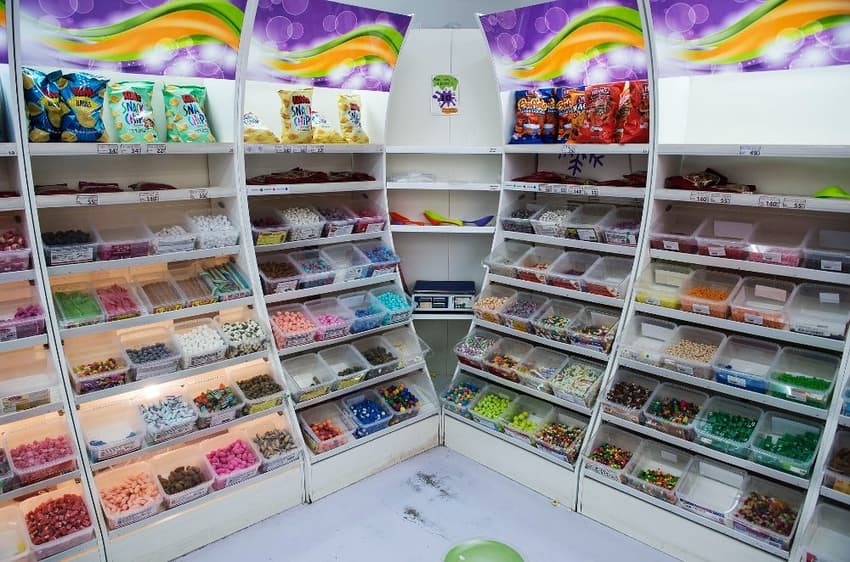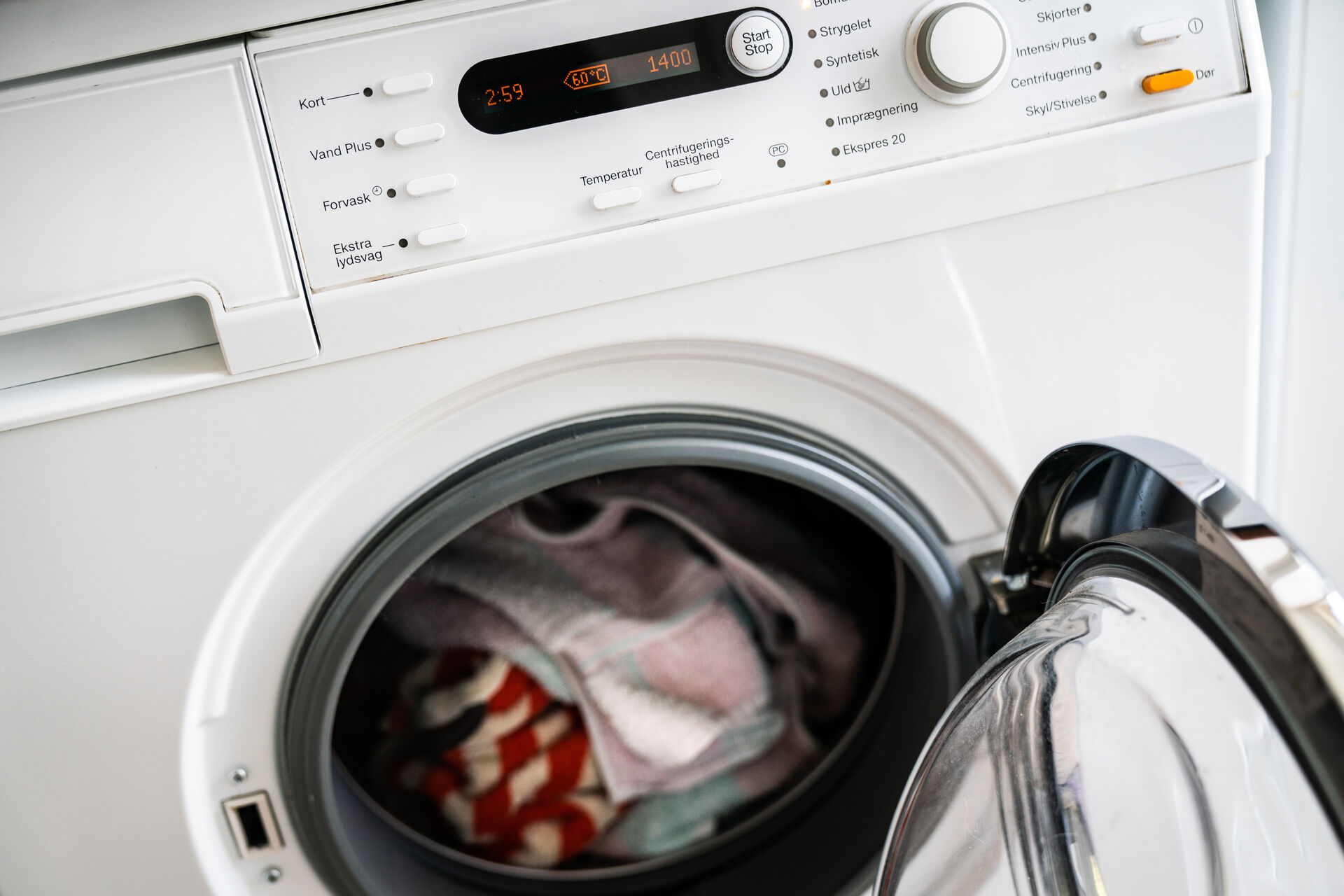10 signs you’re becoming more Danish than the Danes

From doing the dishes to scheduling when you eat sweets and the positioning of your washing machine, there are certain signs that you're slowly - but surely - turning into a true Dane, writes The Local's British journalist Michael Barrett.
Here are the 10 signs that you are becoming Danish. If you score higher than seven, consider yourself integrated...
You don’t use a washing up bowl. Maybe you used to fill up a plastic basin in the kitchen sink with hot water and soap suds. Then, you’d put a pair of marigold-coloured rubber gloves on and wash the dishes using a respectably small (but increasingly cold and greasy) amount of water. Not anymore. If you’re not using a dishwasher, there’s only one way to wash up: under a running tap with squirts of washing up liquid added to the sponge or brush at frequent intervals. The tap will be a mixer tap, of course, not one of those silly double-faucet arrangements.
Saturday sweets or lørdagsslik to give it its Danish name, is now a thing. In the past, you’d have a packet of wine gums or pastilles whenever the fancy took you. Now, liquorice plays a bigger role in satiating your sweet tooth and that satiation happens on a Saturday. Although Danes are not generally as rigid as their Swedish and Norwegian neighbours when it comes to eating candy, it is more acceptable to do so on the weekend than on a regular school night.
Tak for mad. When you’ve finished eating, you can’t leave the table before declaring tak for mad (“thanks for the food”). You can either directly address the person who prepared the meal, or say your thanks into the ether. Both are considered polite ways to express your gratitude. If you have children, they are encouraged to say tak for mad before being given permission to leave the table.
READ ALSO: Five ways to make a good impression at a Danish home
A washing machine in the kitchen seems like a very bizarre way to arrange your domestic appliances. Instead, you either use the shared laundry room (vaskeri) in your apartment building, or have your own washing machine. This will be placed in your bathroom or a utility room with a floor drain, but certainly not in the room where you prepare your food.

Photo: Ida Marie Odgaard/Ritzau Scanpix
You don’t have net curtains or toilet mats, or other frivolous interior design items that serve little practical function and have dubious aesthetics. Carpets in bathrooms are a no-go – just think how much damp they can absorb. Practical matters are more in the foreground when you furnish a room, and you appreciate minimalism and functionality (and no longer find it drab).
You eat lunch at 11am with scant regard for the knock-on effect this will have on your appetite for the rest of the day. Eating lunch before midday is common at Danish workplaces including offices, although the habit is thought to have its roots in Denmark’s agricultural past. Having an early lunch doesn’t have to mean a rumbling stomach later, because you’ll probably leave work at 4pm and be sitting down for your evening meal by around 6.
READ ALSO: Why do Danes eat lunch so early?
You join in on singalongs at wedding receptions and find the droning melody and nine whole verses of made-up lyrics all about the married couple a charming and fun diversion. You don’t mind repeating the tenuously-rhyming chorus and certainly don’t think that everyone singing together like this is awkward, and you’re not desperate for it to be over. That’s because you find fællessang or community singing a great and natural way to get together and celebrate.
READ ALSO: Why do Danes love group singing at family gatherings?
Greetings You send and receive greetings (hilsener) constantly. When you meet someone you know, they pass on greetings to you from their nearest and dearest (jeg skal hilse fra…) and you thank them and dutifully return those greetings (tak! Hils igen). There are so many greetings flying about that it’s impossible to keep track of them all.
You don't flinch at the price tag for a cup of coffee. Denmark is an expensive country but the flat-out shock you'll experience seeing the price tag for a round of drinks can only last so long. You might continue to secretly feel ripped off whenever you buy most things, from coffee and beer to meat and milk. But at some point you'll make peace with the fact that it’s just the reality of living in a Scandinavian country.
You've (finally) developed a taste for rye bread or rugbrød, the beloved national staple of Danish diets. Danes find it unfathomable that anyone could gain adequate nourishment from that cardboard-like white “toast bread” that you use to make sandwiches with. After a while – and this may take years – you begin to realise that a good rugbrødsmad (piece of rye bread with topping), though stodgy and tasteless to the unpracticed, is actually quite good fuel for a busy day. If you ever find yourself back in your home country thinking “I wish I could get some rye bread here”, you can consider yourself more Danish than the Danes.
READ ALSO: 26 sure-fire ways to truly offend a Dane
Comments
See Also
Here are the 10 signs that you are becoming Danish. If you score higher than seven, consider yourself integrated...
You don’t use a washing up bowl. Maybe you used to fill up a plastic basin in the kitchen sink with hot water and soap suds. Then, you’d put a pair of marigold-coloured rubber gloves on and wash the dishes using a respectably small (but increasingly cold and greasy) amount of water. Not anymore. If you’re not using a dishwasher, there’s only one way to wash up: under a running tap with squirts of washing up liquid added to the sponge or brush at frequent intervals. The tap will be a mixer tap, of course, not one of those silly double-faucet arrangements.
Saturday sweets or lørdagsslik to give it its Danish name, is now a thing. In the past, you’d have a packet of wine gums or pastilles whenever the fancy took you. Now, liquorice plays a bigger role in satiating your sweet tooth and that satiation happens on a Saturday. Although Danes are not generally as rigid as their Swedish and Norwegian neighbours when it comes to eating candy, it is more acceptable to do so on the weekend than on a regular school night.
Tak for mad. When you’ve finished eating, you can’t leave the table before declaring tak for mad (“thanks for the food”). You can either directly address the person who prepared the meal, or say your thanks into the ether. Both are considered polite ways to express your gratitude. If you have children, they are encouraged to say tak for mad before being given permission to leave the table.
READ ALSO: Five ways to make a good impression at a Danish home
A washing machine in the kitchen seems like a very bizarre way to arrange your domestic appliances. Instead, you either use the shared laundry room (vaskeri) in your apartment building, or have your own washing machine. This will be placed in your bathroom or a utility room with a floor drain, but certainly not in the room where you prepare your food.

You don’t have net curtains or toilet mats, or other frivolous interior design items that serve little practical function and have dubious aesthetics. Carpets in bathrooms are a no-go – just think how much damp they can absorb. Practical matters are more in the foreground when you furnish a room, and you appreciate minimalism and functionality (and no longer find it drab).
You eat lunch at 11am with scant regard for the knock-on effect this will have on your appetite for the rest of the day. Eating lunch before midday is common at Danish workplaces including offices, although the habit is thought to have its roots in Denmark’s agricultural past. Having an early lunch doesn’t have to mean a rumbling stomach later, because you’ll probably leave work at 4pm and be sitting down for your evening meal by around 6.
READ ALSO: Why do Danes eat lunch so early?
You join in on singalongs at wedding receptions and find the droning melody and nine whole verses of made-up lyrics all about the married couple a charming and fun diversion. You don’t mind repeating the tenuously-rhyming chorus and certainly don’t think that everyone singing together like this is awkward, and you’re not desperate for it to be over. That’s because you find fællessang or community singing a great and natural way to get together and celebrate.
READ ALSO: Why do Danes love group singing at family gatherings?
Greetings You send and receive greetings (hilsener) constantly. When you meet someone you know, they pass on greetings to you from their nearest and dearest (jeg skal hilse fra…) and you thank them and dutifully return those greetings (tak! Hils igen). There are so many greetings flying about that it’s impossible to keep track of them all.
You don't flinch at the price tag for a cup of coffee. Denmark is an expensive country but the flat-out shock you'll experience seeing the price tag for a round of drinks can only last so long. You might continue to secretly feel ripped off whenever you buy most things, from coffee and beer to meat and milk. But at some point you'll make peace with the fact that it’s just the reality of living in a Scandinavian country.
You've (finally) developed a taste for rye bread or rugbrød, the beloved national staple of Danish diets. Danes find it unfathomable that anyone could gain adequate nourishment from that cardboard-like white “toast bread” that you use to make sandwiches with. After a while – and this may take years – you begin to realise that a good rugbrødsmad (piece of rye bread with topping), though stodgy and tasteless to the unpracticed, is actually quite good fuel for a busy day. If you ever find yourself back in your home country thinking “I wish I could get some rye bread here”, you can consider yourself more Danish than the Danes.
READ ALSO: 26 sure-fire ways to truly offend a Dane
Join the conversation in our comments section below. Share your own views and experience and if you have a question or suggestion for our journalists then email us at [email protected].
Please keep comments civil, constructive and on topic – and make sure to read our terms of use before getting involved.
Please log in here to leave a comment.